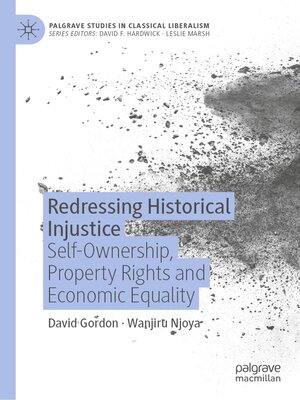Redressing Historical Injustice
ebook ∣ Self-Ownership, Property Rights and Economic Equality · Palgrave Studies in Classical Liberalism
By David Gordon

Sign up to save your library
With an OverDrive account, you can save your favorite libraries for at-a-glance information about availability. Find out more about OverDrive accounts.
Find this title in Libby, the library reading app by OverDrive.



Search for a digital library with this title
Title found at these libraries:
| Library Name | Distance |
|---|---|
| Loading... |
This book offers an alternative to perspectives of distributive justice which fail to resolve economic inequality and exacerbate social problems by ignoring the real causes of inequality. The main impact of the book is to highlight the importance of self-ownership and private property, showing how market participation advances liberty and prosperity.
The idea that we should pay reparations to disadvantaged racial groups as compensation for historical injustice is deeply contested. The debates often focus on the practical implications of paying reparations, but overlook more fundamental questions about the meaning of justice. What is justice? What are the implications of wealth redistribution for individual liberty and the rule of law? This book answers these questions through an analysis of classical liberal perspectives in law, philosophy and economics.
The book questions whether economic inequality stems from historical injustice, and explores the wider implications of attempting to create equal outcomes through legislative mandates. The book argues that free markets, resting on libertarian rights, are the best way to help disadvantaged members of society and to create the conditions more likely to advance economic equality. The book will be of interest to researchers and students of economics, law, politics and philosophy.






